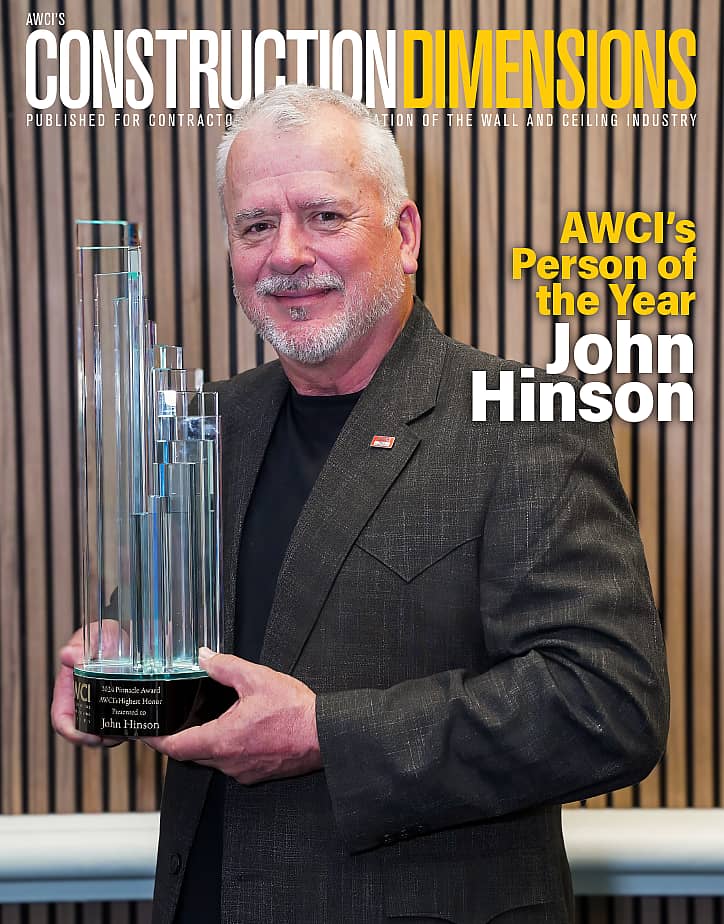The drywall industry faces a problem of attracting young people and others to construction field positions. It’s an ongoing challenge with no easy solutions.
However, could giving attention to corporate culture help with your recruitment? After all, job seekers say that liking who they work for and feeling valued by their employers is a big deal.
In fact, 95 percent of job candidates believe culture is more important than compensation, notes research and consulting firm Bersin by Deloitte. And 41 percent of all job candidates research a firm’s culture before applying to work at the company, says The Talent Board, a non-profit organization that studies job applicant trends. According to Gallup, 31 percent of employees say they’re engaged at work, which suggests that most employees have job misgivings and are eyeing other opportunities.
What kind of job environment and career path does your company offer?
Screening Tool
Company culture is everything that drives, influences and determines the productivity of your employees. It includes your company’s office furniture, the lighting conditions on your job sites, the behavior of colleagues toward one another and more. (See my column, “Have a Happy Culture,” on page 22 of the October 2014 issue of AWCI’s Construction Dimensions.)
Young people are interested in your cultural elements and have a number of ways of assessing them. They visit online job boards and career fairs, speak with guidance counselors, read company blog posts and listen to buzz on the social networks about jobs and careers.
What’s interesting today is that candidates evaluate work opportunities as though they’re consumers buying a product or service. The Talent Board calls it the “consumerization of the candidate experience.” It means that company culture is a screening tool. How do you come across? As a great place to work?
Fortune publishes an annual list of 100 great employers. While this year only four “construction and real estate” companies made the list—a list dominated by companies in professional services, financial services and information technology—I wanted to know how Fortune defines “great employer.” In short, a great place to work offers a great employee experience, volunteering and philanthropy, fair treatment regardless of the individual, a favorable physical work environment and a caring and welcoming workplace.
How can drywall companies get these cultural components in place?
“Culture starts at the top—with the chairman,” says John E. Lehning, a former owner’s representative for some of the largest construction projects ever built in Omaha, Neb., and now retired. “Culture is built on integrity and ethics and has to do with meeting construction standards, honest accounting and safety.”
Cultural cues trickle down from the top and become part of front-line managers and workers’ actions and ethics. Lehning, who has nearly three decades of construction management experience, says you create cultural alignment among job foremen through regular training sessions and clear internal communication. The result is a cultural framework that impacts your policies, work quality, safety record and job-site camaraderie.
It’s up to you to get the word out. So, publish. Talk about your company’s pay and benefits packages, career development, safety initiatives and recognition programs on your company blogs, newsletters, landing pages, tweets, testimonials, photos, videos, press releases and ads.
Promote Your Company Culture
Ask yourself: Do I understand and monitor my company culture? Does our leadership use culture as a way to communicate values and strategy? Am I investing adequately in my people? Do I have a good safety record?
Your company culture is unique to your organization. It builds over time and once it does can be hard to change. So, pay attention to culture. Develop it. Start by focusing on what made your company great in the first place, then promote it.
If you make it easy for candidates to taste, so to speak, your great work environment, then I believe many will be drawn to want to work for your firm.
Mark L. Johnson is an industry marketing consultant and writer. He tweets at @markjohnsoncomm and connects at linkedin.com/in/markjohnsoncommunications.



